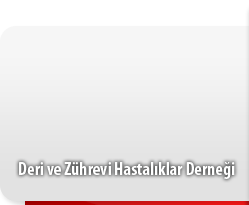Peer-review and Ethics - TURKDERM | Archieves of The Turkish Dermatology and Venerology
Peer-review and Ethics
Peer-review
Turkderm-Turkish Archives of Dermatology and Venereology is an independent international journal based on double-blind peer-review principles
Editorial policies of the journal are conducted according to the rules advised by Council of Science Editors and reflected in the Uniform Requirements for Manuscripts Submitted to Biomedical Journals: Writing and Editing for Biomedical Publication (http://www.icmje.org/).
After check for plagiarism it is evaluated regarding quality for sending to peer review by the editorial board. The papers approved for reviewer evaluation are sent to at least three selected reviewers as blinded-manuscripts. The Editorial board has the complete authority regarding reviewer selection and decision for publication and free to increase the number of reviewers on the articles it deems appropriate.
The reviewers are mainly selected from Editorial Advisory Board. The Editors may decide to send the manuscript to other independent reviewers according to the subject.
After being evaluated by at least three reviewers, editorial board decides for publication or revision or rejection in conjunction with the reviewers’ reports.
Turkderm must get informed about the manuscripts which requested to withdraw including the justifications. The decision is made in accordance with the editorial policies.
Submitted manuscripts are also subjected for the evaluation of plagiarism, duplicate publication by automatic software. Authors are obliged to acknowledge if they published study results in full or in part in form of abstracts.
The authors of the accepted manuscripts should be in consent that the editor and associate editors could make corrections without changing the main text of the paper. Manuscript format should be in accordance with Uniform Requirements for Manuscripts Submitted to Biomedical Journals: Writing and Editing for Biomedical Publication (http://www.icmje.org/).
Ethics
For the experimental, clinical and drug human studies, approval by ethical committee and statement on the adherence of the study protocol to the international agreements (Helsinki Declaration revised 2013 (www.wma.net/e/policy/b3.html) are required. In experimental animal studies, the authors should indicate that the procedures followed were in accordance with animal rights (Guide for the care and use of laboratory animals, www.nap.edu.catalog/5140.html) and they should obtain animal ethic committee approval.
The Ethic Committee approval document should be submitted to the Turkderm-Turkish Archives of Dermatology and Venereology together with the manuscript.
The approval of the ethic committee, statement on the adherence to international guidelines mentioned above and that the patients` informed consent is obtained should be indicated in the `Material and Method` section and is required for case reports whenever data/media used could reveal identity of the patient. The declaration of the conflict of interest between authors, institutions, acknowledgement of any financial or material support, aid is mandatory for authors submitting manuscript and the statement should appear at the end of manuscript. Reviewers are required to report if any potential conflict of interest exists between reviewer and authors, institutions.
Plagiarism: To re-publish whole or in part the contents of another author's publication as one's own without providing a reference.
Fabrication: To publish data and findings/results that do not exist.
Duplication: Use of data from another publication, which includes re-publishing a manuscript in different languages without citing.
Salamisation: To create more than one publication by dividing the results of a study preternaturally.
We disapproval upon such unethical practices as plagiarism, fabrication, duplication, and salamisation, as well as efforts to influence the review process with such practices as gifting authorship, inappropriate acknowledgements, and references.
Additionally, authors must respect participant right to privacy. On the other hand, short abstracts published in congress books that do not exceed 400 words and present data of preliminary research, and those that are presented in an electronic environment are not accepted pre-published work.
Authors in such situation must declare this status on the first page of the manuscript and in the cover letter. (The COPE flowchart is available at: http://publicationethics.org)
We use Crossref Smilarity Check powered by "iThenticate" to screen all submissions for plagiarism before publication.
|



